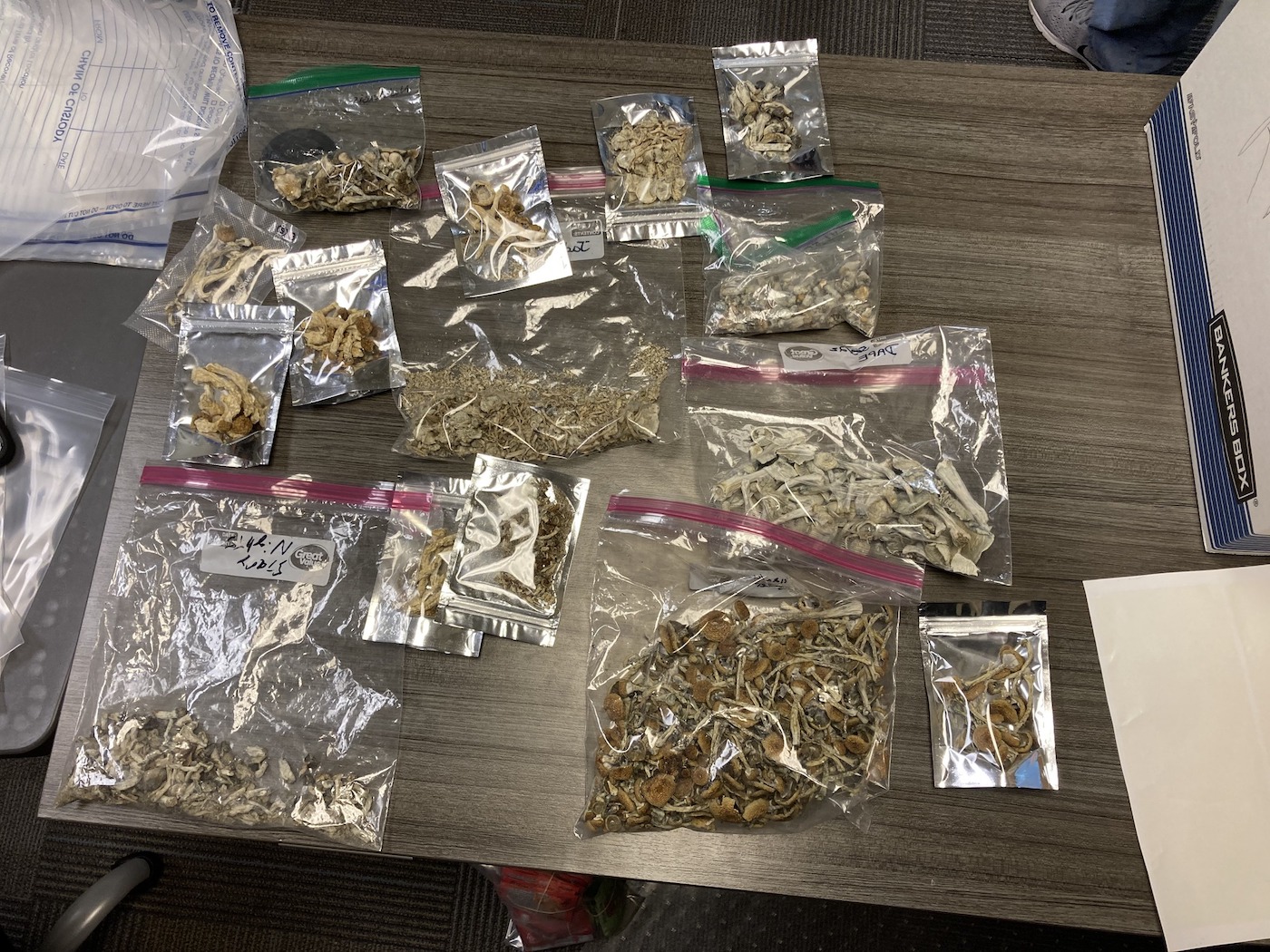A woman in Louisa County, Virginia, faces a sentence of up to 160 years in prison after her conviction for selling psilocybin mushrooms and cannabis, at what law enforcement described as a weekly “pop-up farmers style market for smoking and vaping products.”
Advocates have condemned the costly investigation and extreme potential sentence, when possession and home cultivation of cannabis have been legal in Virginia for some years, and when other jurisdictions have decriminalized or legalized naturally occurring psychedelics.
On December 2—the very day the DEA’s historic marijuana rescheduling hearing began—Dawn Marie Morris, 51, was found guilty of selling psilocin, a psychoactive compound in “magic mushrooms,” and cannabis. She was also convicted of perjury for falsely claiming financial hardship to obtain court-appointed legal counsel.
Morris’s sentencing is scheduled for February 3, 2025.
“After all the scientific research and policy successes, it’s outrageous that some law enforcement agencies are still trying to ruin lives by pushing for 160-year prison sentences.”
Dr. Larry Norris, cofounder of psychedelic advocacy group Decriminalize Nature, described the conviction as “tragic,” and slammed the priorities of local law enforcement.
“After all the scientific research and policy successes, it’s outrageous that some law enforcement agencies are still trying to ruin lives by pushing for outrageous 160-year prison sentences for people because of natural plants and mushrooms,” he told Filter. “People should have the freedom to heal on their own terms, without government interference.”
The conviction stems from a law enforcement seizure back in September 2023, when the Louisa County Narcotics Task Force executed a search warrant at a storage facility owned by Morris. They reportedly found smoking products, edibles, “various drugs” and “rolling buds.”
During the task force’s investigation, undercover officers had previously purchased psilocyn from Morris at her market table on at least one occasion. A subsequent search warrant executed at Morris’s home reportedly yielded additional substances, packing materials and nearly $100,000 in cash. Law enforcement declared that the total value of confiscated assets, at $432,000, was a record for Louisa County.
Morris, who had promoted her vape business under the name “Higher Education,” is also required to remove her marketing signs from public property.
“We hope this case sends a strong message to drug dealers that if you peddle your poison in Louisa, you will lose your drugs, money, and freedom,” Commonwealth’s Attorney Rusty McGuire said in a press release.
McGuire also said the conviction marks the third felony case involving vape businesses in Louisa County. At a Louisa County Board of Supervisors meeting on December 2, officials reportedly conflated the Morris case with a so-called “epidemic” of teenage nicotine vaping. National teen vaping rates began falling substantially some years ago.
Virginia residents over 21 have been legally able to possess and grow cannabis at home since 2021. However, a proposed retail sales rollout, approved by the legislature in early 2024, was vetoed by Governor Glenn Youngkin (R) in March.
“The proposed legalization of retail marijuana in the Commonwealth endangers Virginians’ health and safety,” Youngkin said at the time, adding that in his opinion, it would “not eliminate the illegal black-market sale of cannabis, nor guarantee product safety.”
State Delegate Paul Krizek (D), the lead sponsor of the legal-sales bill, blasted that decision and predicted it would backfire.
“Governor Youngkin’s failure to act allows an already thriving illegal cannabis market to persist, fueling criminal activity and endangering our communities,” Krizek said in March. The veto, he continued, “squandered a vital opportunity to safeguard Virginians and will only exacerbate the proliferation of illicit products, posing greater risks to our schools and public safety.”
“No one should be facing dying in prison for a smaller-scale operation than what many multi-state corporations are doing on a daily basis.”
Jason Ortiz, director of strategic initiatives at the Last Prisoner Project, believes the Morris case underscores some of the problems with Youngkin’s decision.
“This case is a clear example of the necessity to move beyond simple possession and to decriminalize the sale of cannabis as well, considering that sales are now legal in most of the country,” Ortiz told Filter. “No one should be facing dying in prison for a smaller-scale operation than what many multi-state corporations are doing on a daily basis.”
Will Nelson, cofounder of Decriminalize Nature Virginia, also denounced the “aggressive prosecution of Dawn Marie Morris.”
“This case highlights the need to end the criminalization of entheogenic plants and fungi,” he told Filter.
Virginia lawmakers recently postponed discussions on psychedelic policy reform to the next legislative session. But Nelson said his group has garnered significant bipartisan support on the issue.
“Decriminalize Nature Virginia is committed to reforming unjust policies and protecting access to healing plants in the Commonwealth of Virginia,” he added.
Photograph of evidence in the Morris case via Louisa County Sheriff’s Office





Show Comments